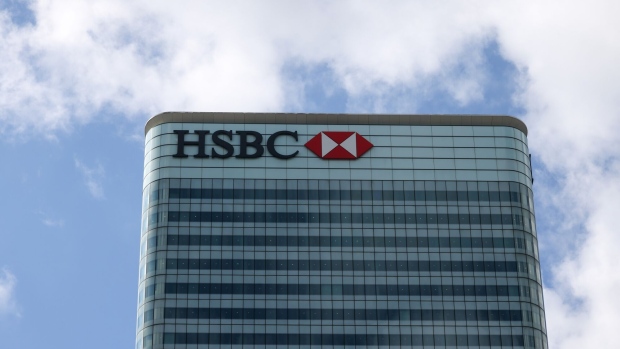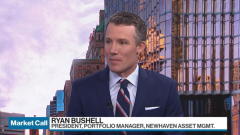Aug 30, 2023
HSBC Executive Sees Broad Mispricing of Risk as ESG Bites
, Bloomberg News

(Bloomberg) -- Investors aren’t paying enough attention to the very real environmental, social and governance risks lurking in portfolios, according to the global head of ESG research at HSBC Holdings Plc.
It’s a phenomenon that’s starting to dominate news headlines as events such as wildfires, environmental scandals and labor disputes lead to sudden investor losses. Recent examples include AT&T Inc., whose shares sank amid reports that its cables contained toxic lead; United Parcel Service Inc., which issued a profit warning after trying to resolve a worker dispute; and TUI AG, which has seen its shares tank as many of its tourist destinations get ravaged by fires.
Figuring out how to price such risks is far from straightforward, according to Wai Shin Chan, who oversees HSBC’s global ESG research from Hong Kong. But underestimating ESG effects comes with a sting, he said.
“Attribution is very, very difficult to do,” Chan said. “But we believe the externalities of sustainability issues aren’t well priced or accurately priced at the moment, given the potential damage to both society, economies and the environment that can be done if these sustainability issues are left unaddressed.”
It’s a view that’s gaining traction, even among financial professionals who profess to hate the label “ESG.” A recent Bloomberg survey found that roughly two-thirds of respondents don’t like saying “ESG,” given the political backlash spearheaded by Republicans in the US, but acknowledge they can’t afford to ignore it.
And last week, academics at the University of Chicago published a study warning that failure to take the economic cost of climate change into account is wiping out prosperity. They conclude that the damage done when corporations emit greenhouse gases is equivalent to roughly 44% of their operating profits, on average.
As asset managers struggle to design reliable models to help investors dodge ESG risks, an entire cottage industry of consultancies and data providers has shot up in an effort to fill the information gaps fund bosses face. A key pillar of such data offerings is ESG ratings, which the European Union is now trying to regulate after investor complaints that the scores provided lacked transparency and consistency.
Chan says “it’s encouraging to see additional scrutiny from regulators on ESG rating providers.”
He also says HSBC differentiates itself by doing ESG integration, rather than scoring and rating. Analysts in Chan’s team are expected to take ESG issues such as regulations into account when trying to quantify risks, and that includes “determining the materiality of a particular issue,” he said.
Click here to access the Bloomberg Intelligence ESG landing page.
It also entails trying to establish whether a company looks ready for things like regulatory crackdowns, and “how that could affect their business strategy and then play out in the financials,” Chan said.
The US Securities and Exchange Commission is seeking to enforce rules that will require companies to show investors just how big their carbon footprints are. And it follows multiple waves of EU regulations requiring ESG disclosures from corporations and investment firms, as well as global efforts to set ESG reporting standards.
Margarita Pirovska, director of policy at the United Nations-backed Principles for Responsible Investment, says there’s a clear trend toward transition-related policy frameworks.
“Investors need to be careful and observe the data and observe the market, observe policy,” she said. In some cases, that includes going a step further and engaging with policymakers “to push for more coherent reform, because otherwise it’s not going to be very effective,” she also said.
Chan says HSBC provides clients with a framework to show how they should incorporate ESG issues into their analysis, to supplement ratings if those are used. It’s important to determine the materiality of a particular issue, including the financial impact of new regulations, he said.
Bloomberg News parent Bloomberg LP and affiliates provide access to ESG data products, including Bloomberg’s proprietary ESG scores. Bloomberg doesn’t calculate ESG ratings.
(Adds comment from PRI director in 12th, 13th paragraphs.)
©2023 Bloomberg L.P.


